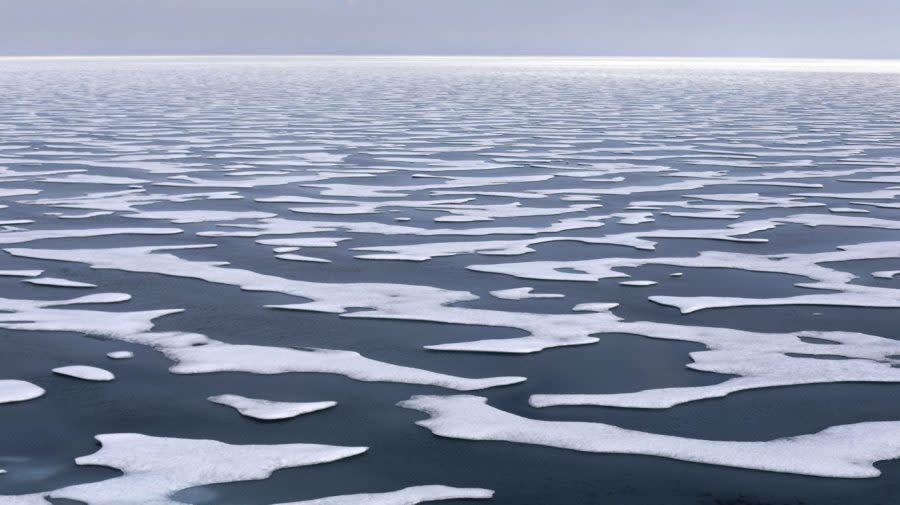Climate-driven ice breakage is shortening shipping season in Northwest Passage: Study

A surging supply of thick sea ice — fragmenting due to the warming effects of climate change — is shortening the shipping season through the Northwest Passage, a new study has found.
While previous analyses have explored whether the Northwest Passage might become a more viable alternative to traditional shipping routes as the climate warms, the study authors expressed fear that the opposite may be true.
The sea ice, which is flowing south from the Arctic Ocean, already slashed the ice-free shipping season in several parts of the channel between 2007 and 2021, according to the study, published Thursday in the journal Communications Earth & Environment.
The Northwest Passage, a commercial shipping route that connects the Atlantic and Pacific oceans via the Arctic Circle, north of North America, splits into a southern and northern preferable path in the Canadian Arctic Archipelago.
The period during which both routes remain navigable for certain ships has undergone significant changes due to global warming, according to the Scottish-Canadian research team, whose lead author is based at the Scottish Association for Marine Science.
“The variability of shipping season and, in particular, the shortening of the season will impact not only international shipping but also resupply and the cost of food in many Arctic communities,” the authors stated.
To draw their conclusions, the scientists used sea ice charts from the Canadian Ice Service to calculate the number of weeks each year that every 10-kilometer (6.2-mile) stretch through the Canadian Arctic Archipelago remained navigable.
They defined navigability as an area through which a “PC 7 class ship” — a ship capable of safely traveling through ice up to 70 centimeters (27.6 inches) — could pass.
Ultimately, the researchers found that the shipping season was cut short in three sections of the northern route, with a particular area, called the M’Clure Strait, acting as a choke point in the Northwest Passage.
Impacts were so stark in parts of the northern route that certain areas exhibited a decrease of up to 14 weeks in navigability over the 15 years of study.
Not only did the authors identify these issues with navigability, but they also determined that this type of floating, thick ice poses a greater safety risk to ships than the thinner ice that was previously most common in the area.
Meanwhile, they emphasized the gravity of the knock-on effects that coastal communities in the region could endure when it comes to the receipt of food and other products.
“Many Canadian Arctic communities rely on maritime traffic for the resupply of goods and store-bought food,” the authors stated, calling for urgent policy responses.
“Impacts on community resupply and the cost of food will be very important as climate change continues to reduce access to country food and increase food insecurity,” they concluded.
Copyright 2024 Nexstar Media, Inc. All rights reserved. This material may not be published, broadcast, rewritten, or redistributed.
For the latest news, weather, sports, and streaming video, head to The Hill.


